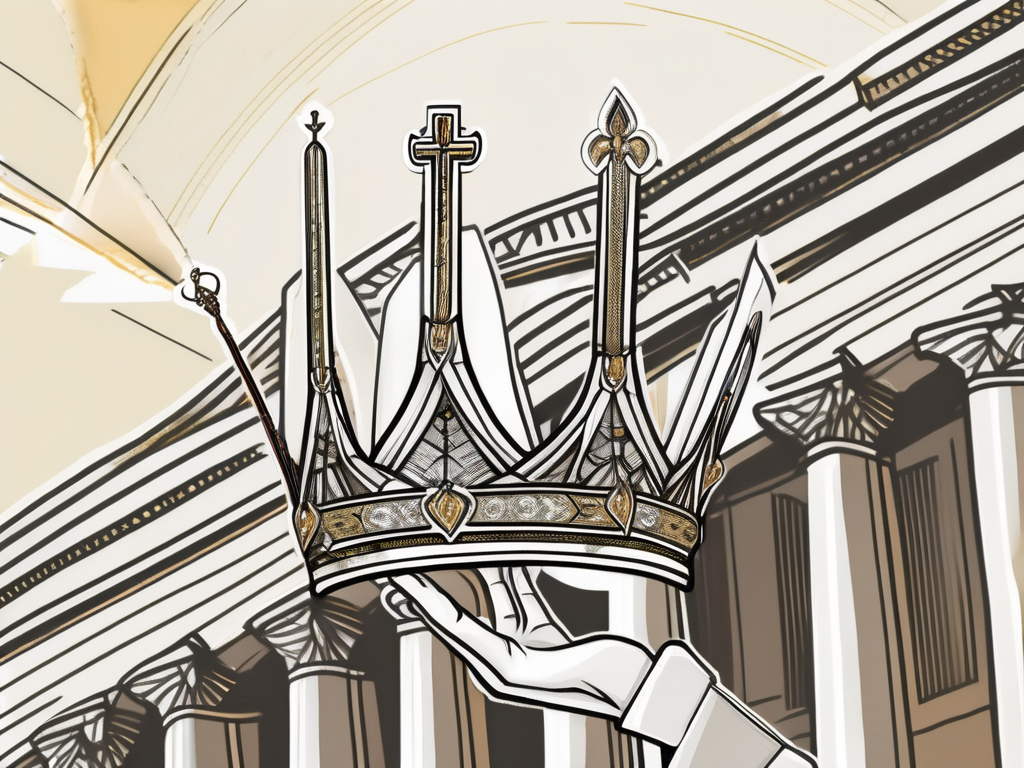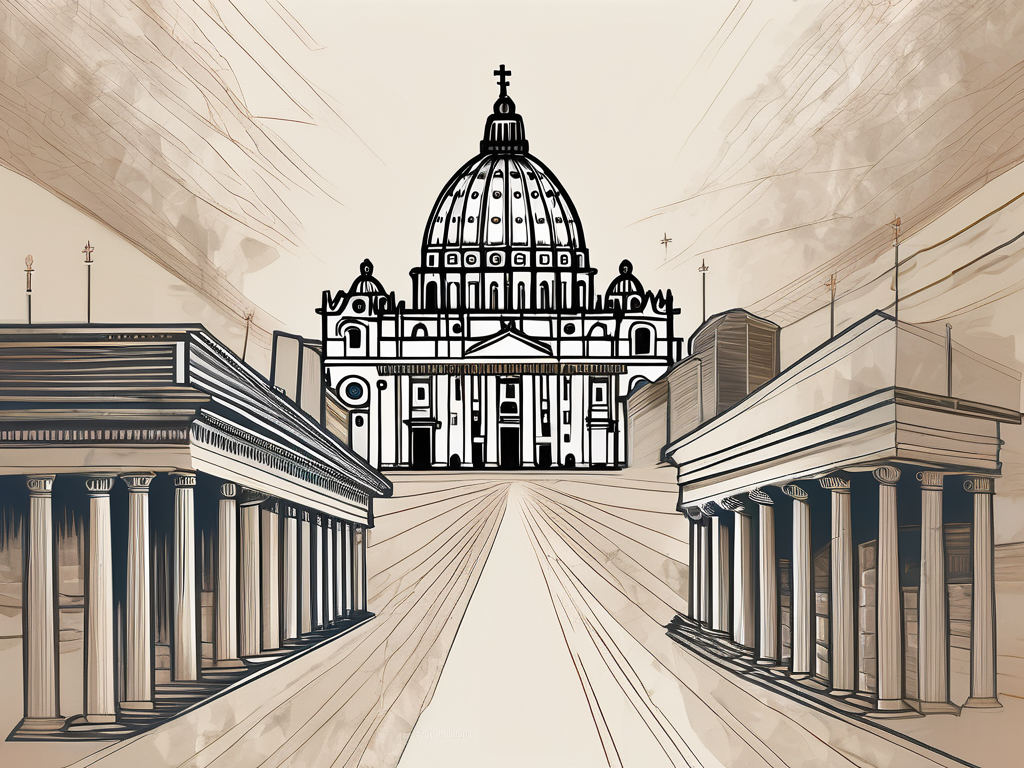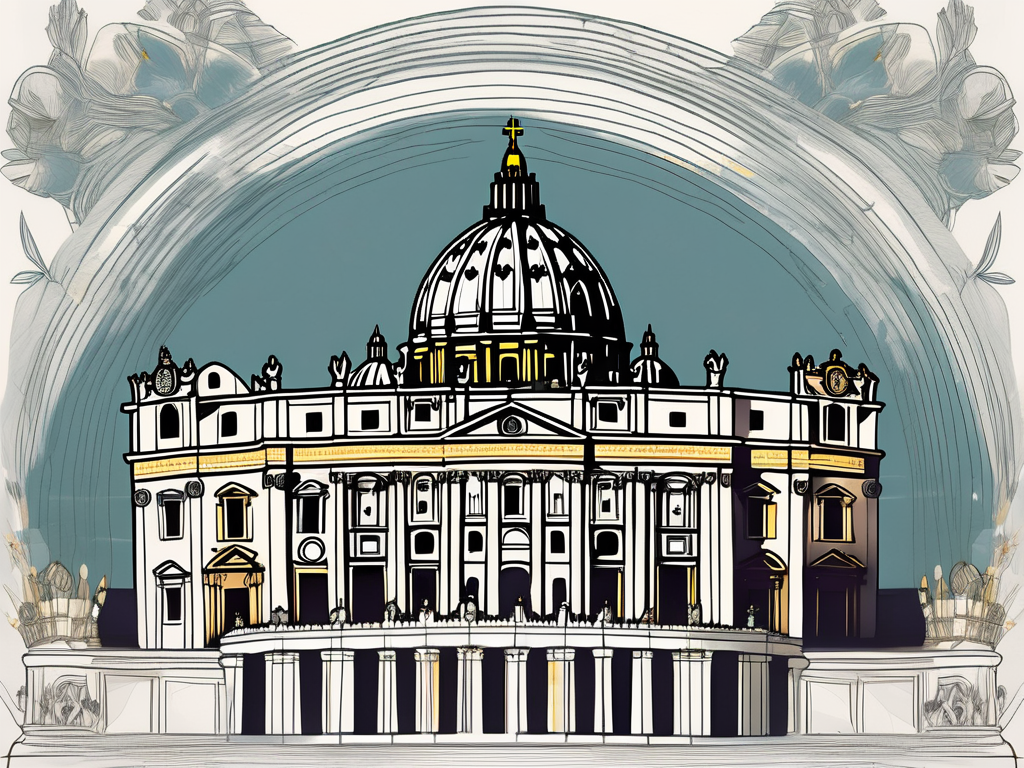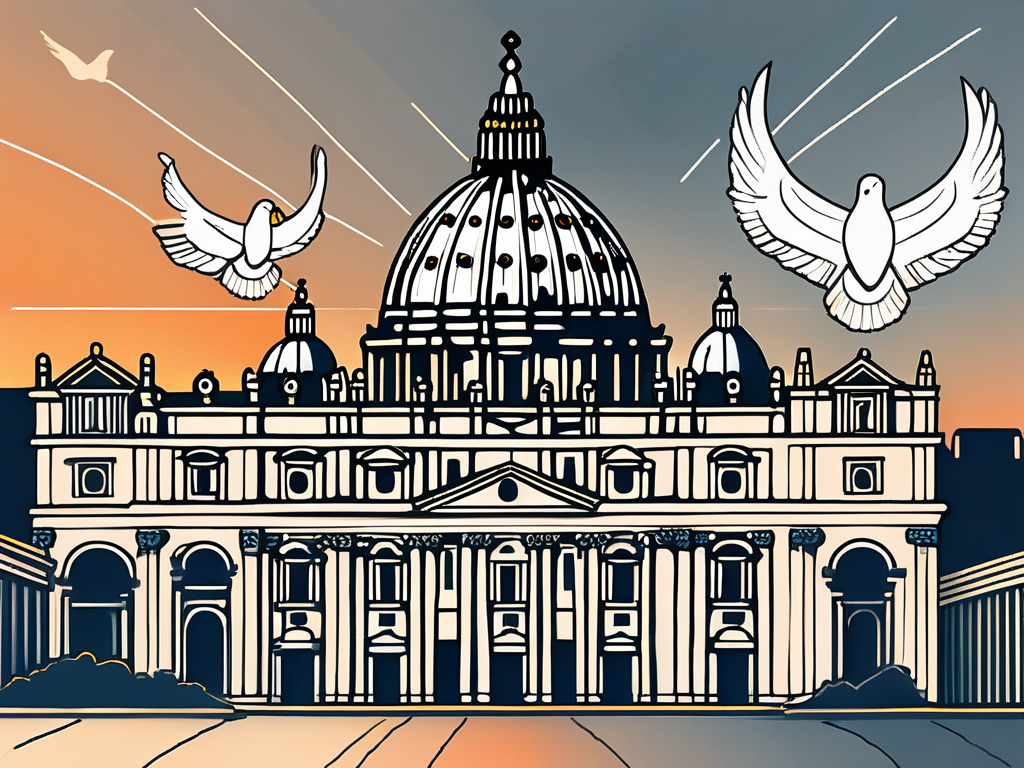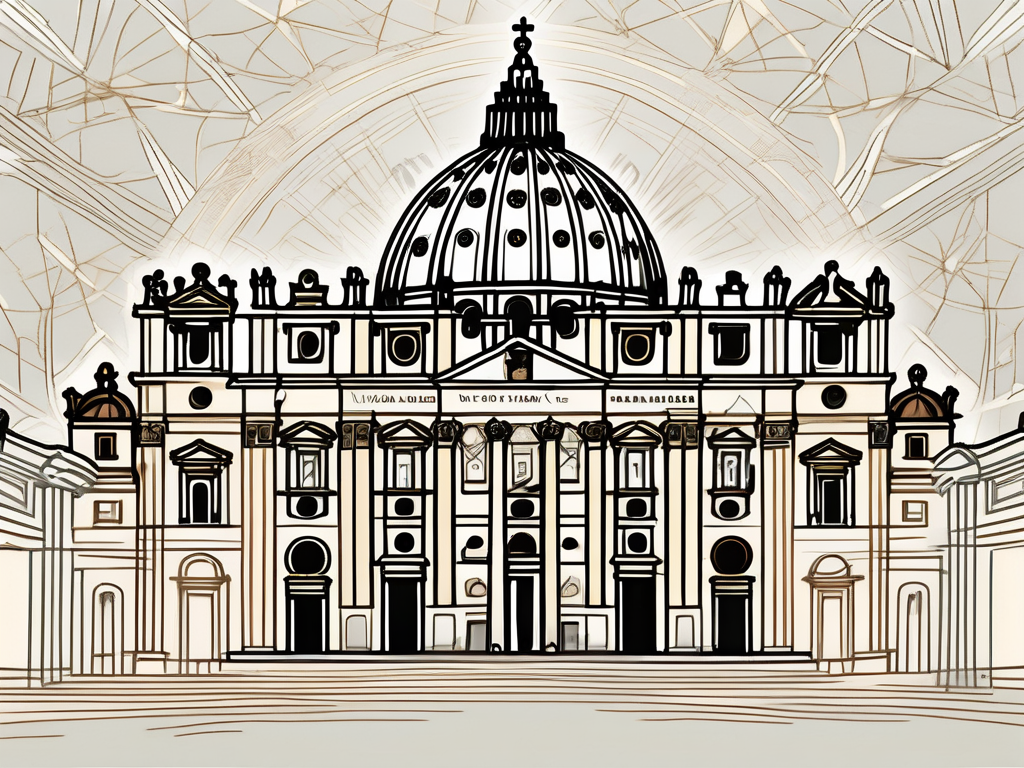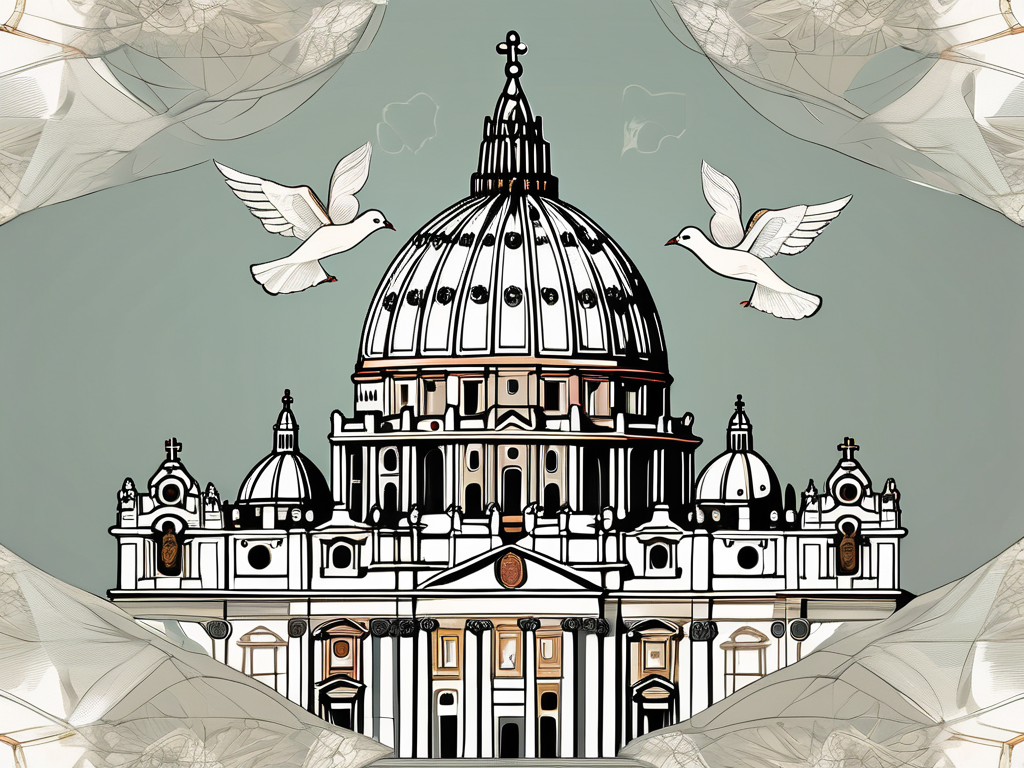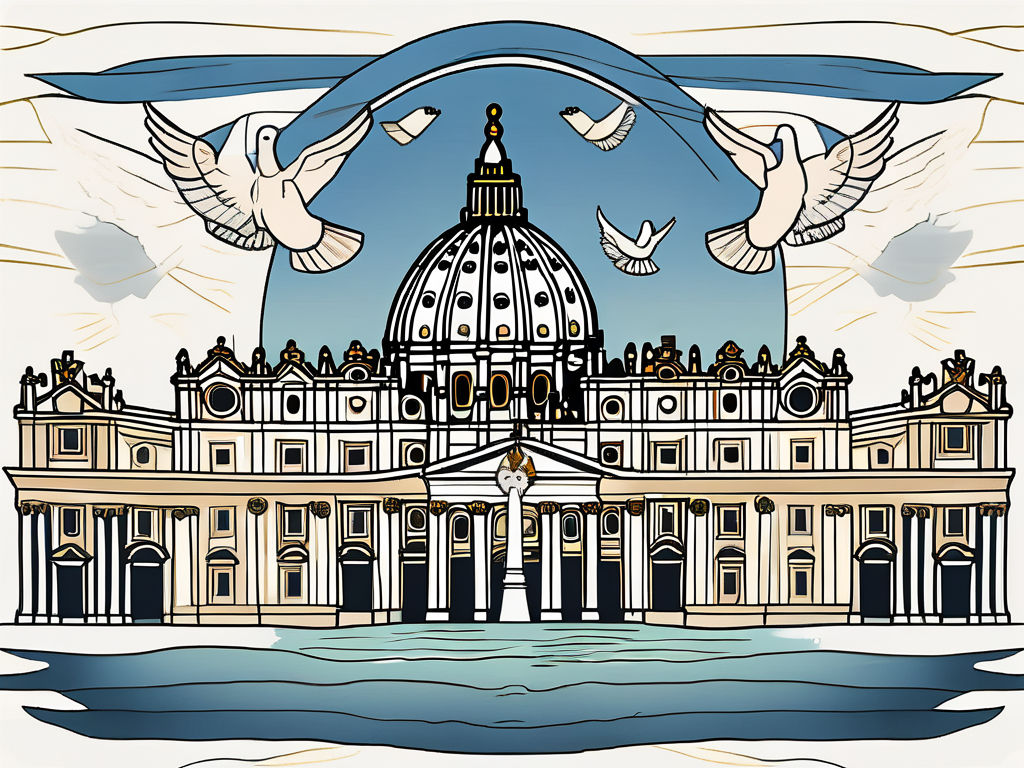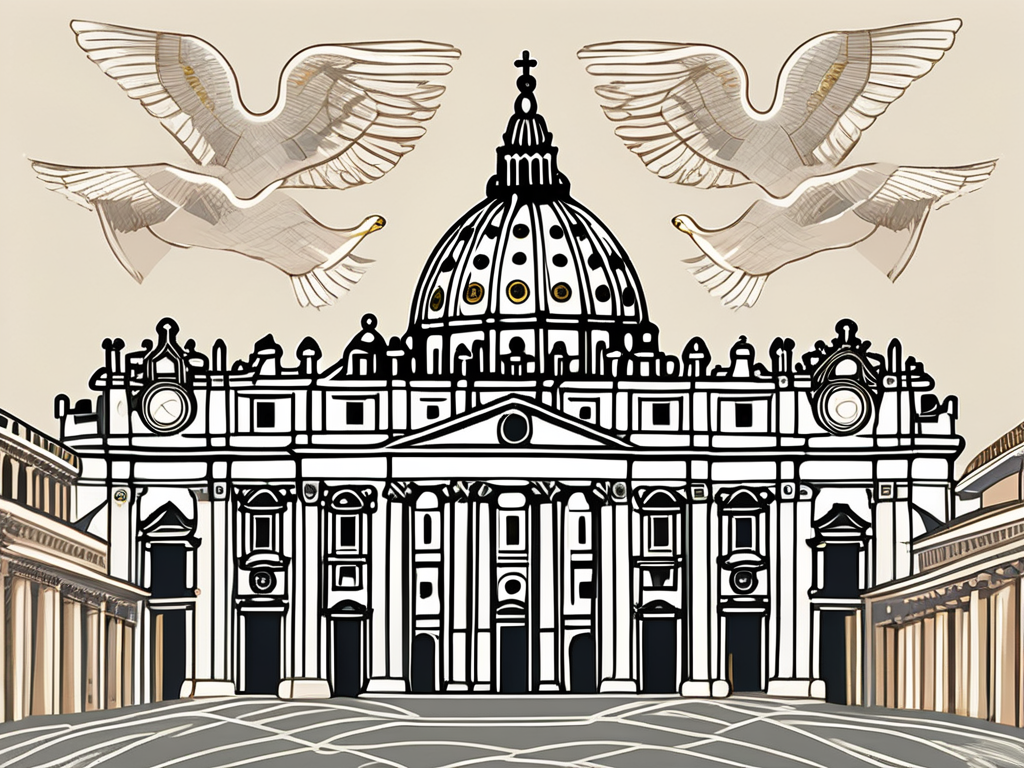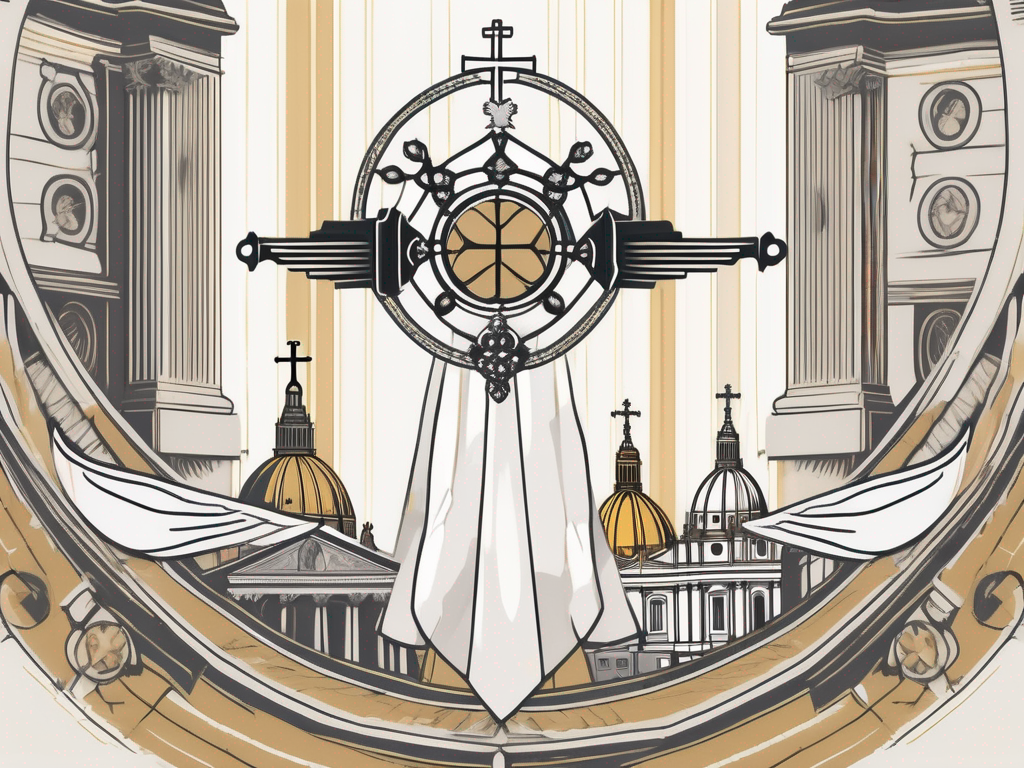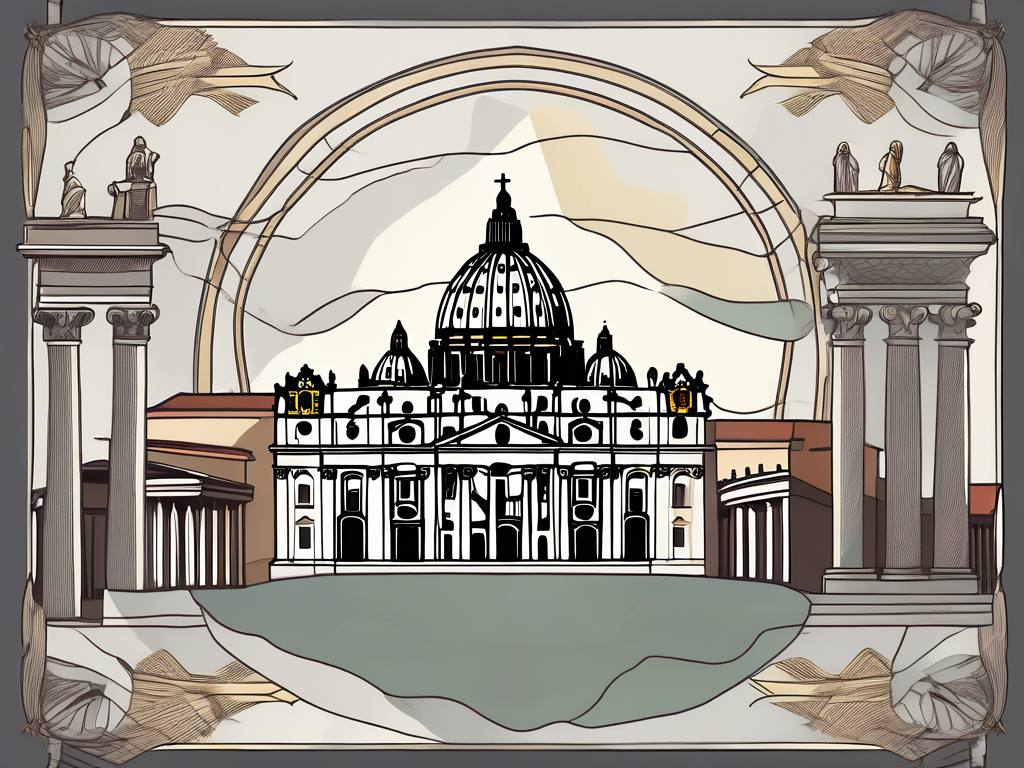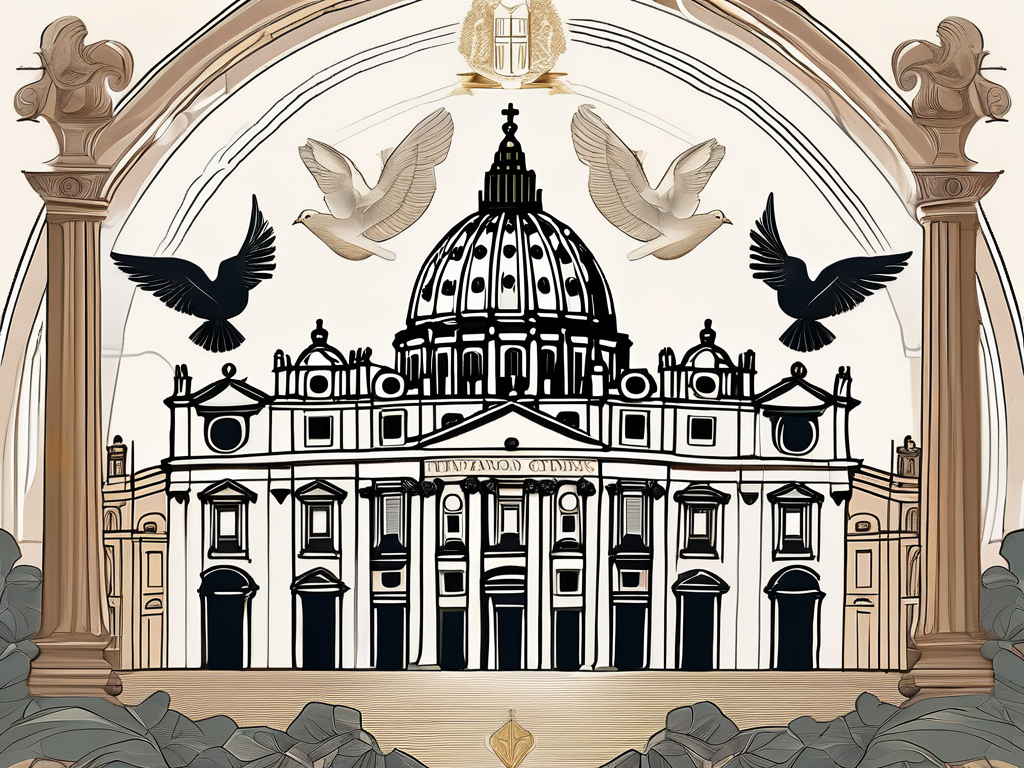Pope Pius V, born Antonio Ghislieri, is a figure of great importance in Catholic history. His papacy, which lasted from 1566 to 1572, left a lasting impact on the church and the world at large. From his early years to his canonization, this article will delve into the life, achievements, and legacy of Pope Pius V.
Understanding Pope Pius V: His Life and Times
Early Life and Path to Papacy
Pope Pius V, whose birth name was Antonio Ghislieri, was born on January 17, 1504, in the small town of Bosco Marengo, Italy. Coming from a humble family, young Antonio faced numerous challenges that shaped his character and fueled his determination to make a difference in the world.
From an early age, Antonio showed great intellectual potential and a strong devotion to his Catholic faith. Recognizing his calling, he joined the Dominican Order at the age of fourteen, embarking on a path of piety and scholarship. During his time as a Dominican friar, he immersed himself in theological studies, honing his understanding of Catholic doctrine and deepening his spiritual connection with God.
Antonio’s dedication and intellectual prowess did not go unnoticed. His reputation as a brilliant theologian and his unwavering commitment to the Catholic Church caught the attention of influential figures within the Church hierarchy.
In 1566, Cardinal Ghislieri was elected as Pope Pius V, assuming the papal throne during a tumultuous period in history. The Reformation, ignited by Martin Luther’s Ninety-Five Theses, was in full swing, challenging the authority and teachings of the Catholic Church. Additionally, the Catholic Church faced internal conflicts and corruption that demanded immediate attention and reform.
Significant Events During His Papacy
Pope Pius V’s papacy was marked by his unwavering commitment to defending and strengthening the Catholic Church. He recognized the urgent need for reform and took decisive action to address the challenges faced by the Church.
One of the most significant events of his papacy was the convening of the Council of Trent. This ecumenical council, which spanned over several years, aimed to address doctrinal issues and promote spiritual renewal within the Church. Under Pope Pius V’s guidance, the council produced a series of decrees and canons that clarified Catholic doctrine, condemned heretical teachings, and emphasized the importance of personal holiness and moral integrity among the clergy.
Pope Pius V’s commitment to upholding Catholic orthodoxy extended beyond the Council of Trent. He vigorously defended the Church against external threats, particularly the spread of Protestantism. Through his papal bulls and decrees, he sought to combat heresy and ensure the preservation of Catholic teachings and traditions.
Furthermore, Pope Pius V played a crucial role in the formation of the Holy League, a military alliance that aimed to counter the expansionist ambitions of the Ottoman Empire. This alliance, consisting of various European powers, successfully repelled the Ottoman fleet in the Battle of Lepanto in 1571. Pope Pius V attributed the victory to the intercession of the Blessed Virgin Mary, instituting the Feast of Our Lady of Victory, later renamed the Feast of Our Lady of the Rosary, to commemorate the event.
Pope Pius V’s papacy was characterized by his unwavering commitment to the Catholic Church, his tireless efforts to combat heresy, and his dedication to promoting spiritual renewal. His legacy continues to inspire Catholics around the world, reminding them of the importance of faith, integrity, and the pursuit of truth.
The Reformation and Counter-Reformation: Pope Pius V’s Role
The Council of Trent and Its Aftermath
The Council of Trent, which spanned from 1545 to 1563, played an instrumental role in Pope Pius V’s efforts to rejuvenate the Catholic Church. Through its decrees and reforms, the council aimed to clarify doctrine, address abuses, and strengthen the church’s authority.
During the Council of Trent, theologians and church officials from all over Europe gathered to discuss and debate various issues that had arisen during the Protestant Reformation. The council’s sessions were marked by intense discussions, as participants sought to find common ground and establish a unified Catholic response to the challenges posed by the Protestant movement.
One of the key outcomes of the Council of Trent was the reaffirmation of Catholic doctrine and the rejection of Protestant teachings. The council issued decrees that clarified the church’s stance on topics such as the sacraments, the role of the clergy, and the authority of the Pope. These decrees provided a solid foundation for Pope Pius V’s efforts to restore unity and discipline within the Catholic Church.
Pope Pius V diligently implemented the council’s decrees, ensuring that they were followed and enforced throughout the Catholic world. He appointed bishops and cardinals who were committed to upholding the council’s reforms, and he actively promoted the teachings of the council through sermons and pastoral letters.
Under Pope Pius V’s leadership, the Catholic Church experienced a renewed sense of unity and discipline. The faithful were encouraged to embrace the council’s teachings and to participate actively in the sacraments. The Pope’s efforts to strengthen the church’s authority also included the establishment of seminaries to train priests and the publication of a revised Roman Missal, which standardized the liturgy across the Catholic world.
The Papal Bull and Its Implications
In 1570, Pope Pius V issued the papal bull “Regnans in Excelsis,” which excommunicated Queen Elizabeth I of England. This decisive act strained diplomatic relations between the Catholic Church and England, leading to increased tensions and conflicts.
The papal bull “Regnans in Excelsis” was a direct response to Queen Elizabeth I’s establishment of the Church of England, which had severed ties with Rome and embraced Protestantism. By excommunicating the Queen, Pope Pius V aimed to delegitimize her rule and assert the authority of the Catholic Church.
The bull’s implications extended beyond the immediate situation and set the stage for future Catholic-English relations. It further cemented Pope Pius V’s commitment to protect and promote Catholicism, even in the face of political opposition. The excommunication of Queen Elizabeth I had far-reaching consequences, as it deepened the divide between Catholics and Protestants in England and fueled religious tensions that would persist for centuries.
Despite the strained relations between the Catholic Church and England, Pope Pius V’s actions garnered support from Catholics across Europe. Many saw his stance against Protestantism as a necessary defense of the true faith, and his excommunication of Queen Elizabeth I was seen as a bold and courageous move.
Pope Pius V’s papacy was marked by a firm commitment to the principles of the Counter-Reformation. His efforts to implement the decrees of the Council of Trent and his decisive actions against Protestantism left a lasting impact on the Catholic Church and shaped the course of European history.
Pope Pius V and the Ottoman Empire
The Battle of Lepanto: A Turning Point
One of Pope Pius V’s greatest achievements was his instrumental role in the Battle of Lepanto in 1571. This naval battle pitted the Holy League, led by Spain, Venice, and the Papal States, against the Ottoman Empire. The victory at Lepanto was a significant blow to Ottoman naval power and a crucial turning point in the conflict between Christianity and Islam.
Pope Pius V, recognizing the spiritual and political importance of the battle, played a prominent role in rallying Christian forces and urging them to fight under the banner of Catholicism.
Diplomatic Relations and Their Consequences
Pope Pius V’s firm stance on defending Catholicism often strained diplomatic relations with other powers. Nevertheless, his unwavering commitment to the faith resonated with many who saw him as a defender of the church and its teachings.
While his approach sometimes posed challenges in diplomacy, it solidified his reputation as a protector of Catholic interests in an era of great religious strife.
The Canonization of Pope Pius V
The Process and Its Significance
Pope Pius V’s life of piety, dedication, and tireless efforts to protect the church led to his eventual canonization in 1712. His recognition as a saint by the Catholic Church serves as a testament to his lasting impact and exemplary character.
The canonization process involved rigorous scrutiny of his life, actions, and evidence of miracles attributed to him, ensuring that only the most deserving individuals are recognized as saints.
His Legacy in the Catholic Church
Pope Pius V’s legacy can be seen in his contributions to the Catholic Church. His commitment to the Counter-Reformation laid the foundation for future initiatives aimed at renewal and revitalization within the church.
Moreover, his unwavering defense of Catholic teachings and his efforts to strengthen the church’s authority continue to inspire and guide believers to this day.
The Lasting Impact of Pope Pius V’s Papacy
Influence on Subsequent Popes
Pope Pius V’s papacy left an indelible mark on subsequent popes. His commitment to fighting heresy, promoting unity, and upholding the traditions of the Catholic Church set a precedent for future leaders of the church.
His example influenced many popes who followed him, inspiring them to confront challenges and safeguard the faith with unwavering dedication.
Pope Pius V’s Role in Modern Catholicism
Pope Pius V’s impact extends far beyond his earthly lifetime. His dedication to the Catholic Church and his efforts to strengthen its foundations continue to shape modern Catholicism.
The Counter-Reformation, initiated during his pontificate, revitalized the church and solidified its teachings. Many of the reforms and principles he championed still guide the faithful and help navigate the challenges of the present age.
In conclusion, the legacy of Pope Pius V is one of profound impact and enduring significance. From his commitment to the Counter-Reformation to his role in defending Catholicism against external threats, his papacy left an indelible mark on the Catholic Church and the wider world. Pope Pius V’s unwavering dedication to the faith and his tireless efforts to preserve and strengthen the church continue to inspire believers and shape the course of Catholic history.
